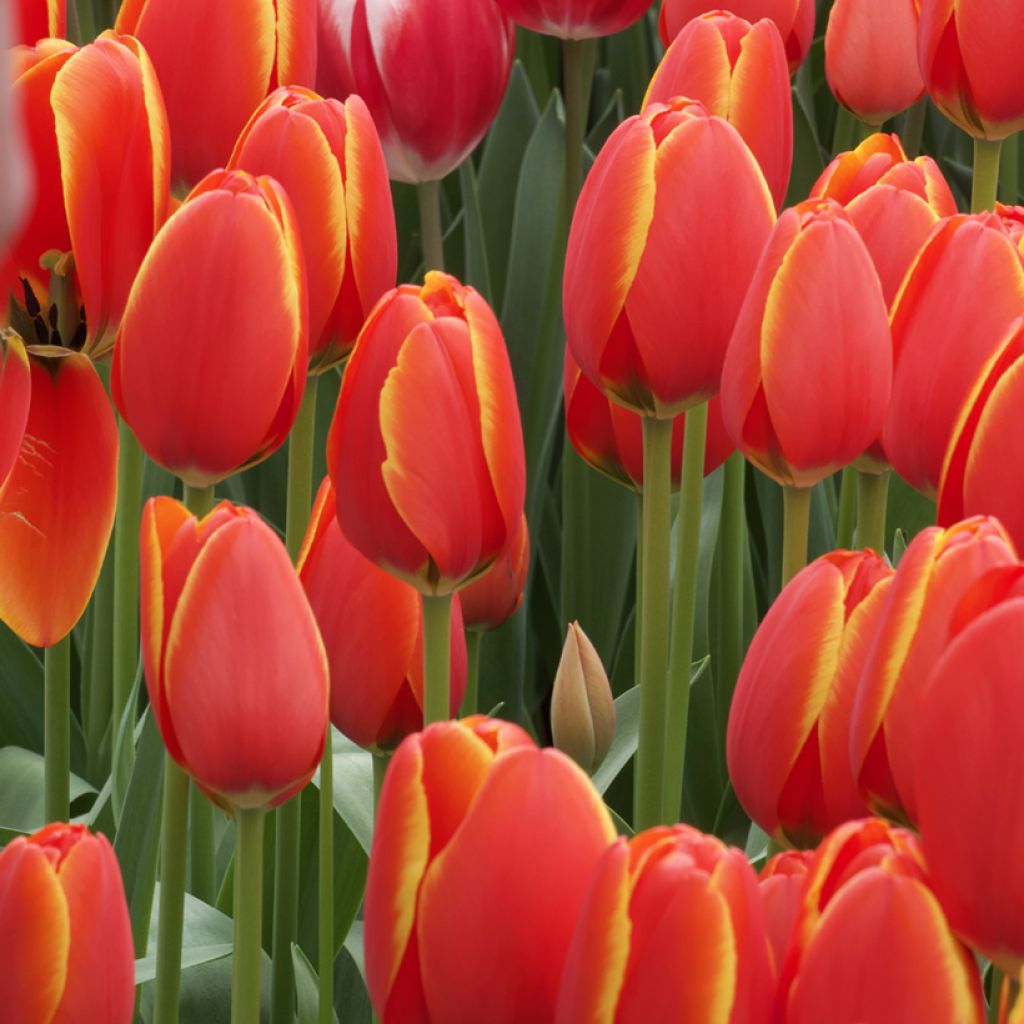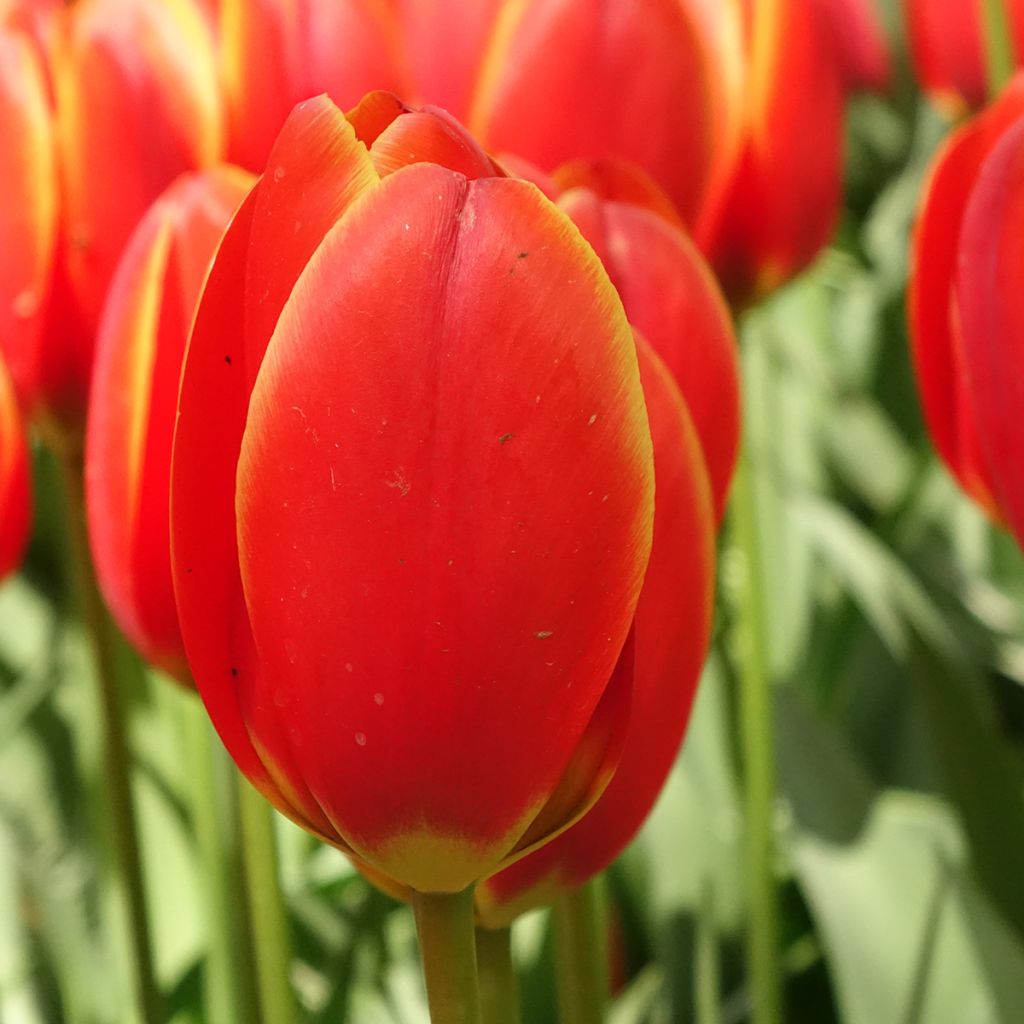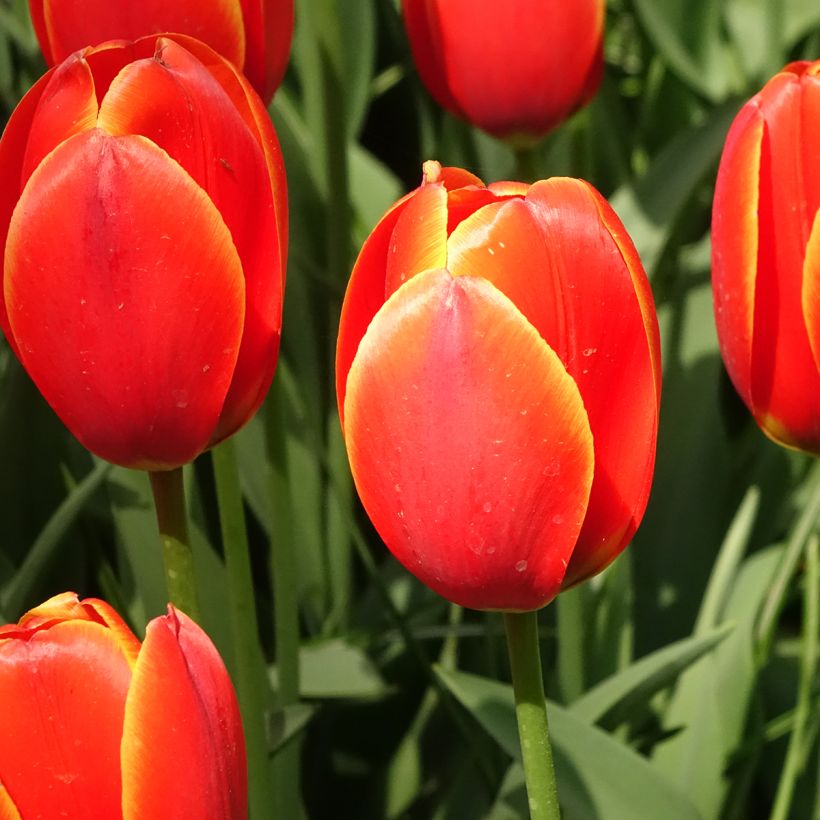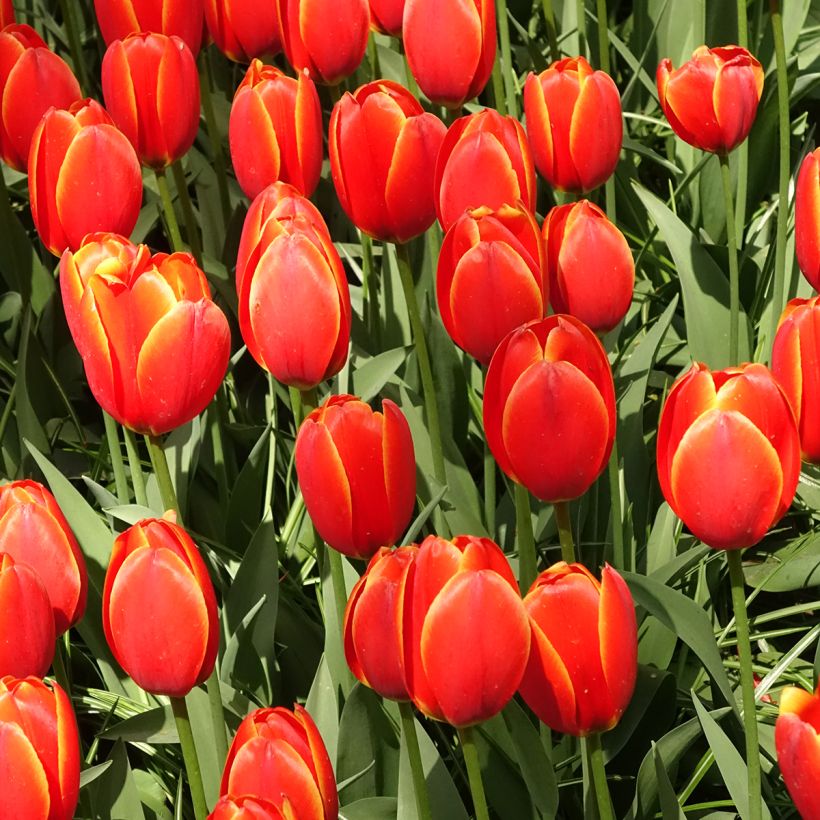

Tulipa World's Favourite - Darwin hybrid Tulip


Tulipa World's Favourite - Darwin hybrid Tulip
Tulipa World's Favourite - Darwin hybrid Tulip
Tulipa Darwin hybride World's Favourite
Tulip
Special offer!
Receive a €20 voucher for any order over €90 (excluding delivery costs, credit notes, and plastic-free options)!
1- Add your favorite plants to your cart.
2- Once you have reached €90, confirm your order (you can even choose the delivery date!).
3- As soon as your order is shipped, you will receive an email containing your voucher code, valid for 3 months (90 days).
Your voucher is unique and can only be used once, for any order with a minimum value of €20, excluding delivery costs.
Can be combined with other current offers, non-divisible and non-refundable.
This plant carries a 6 months recovery warranty
More information
We guarantee the quality of our plants for a full growing cycle, and will replace at our expense any plant that fails to recover under normal climatic and planting conditions.
Would this plant suit my garden?
Set up your Plantfit profile →
Description
The Darwin Hybrid Tulip 'World's Favourite' is a variety with large intensely bicoloured cup-shaped flowers, in scarlet red edged with golden yellow. Belonging to the line of remarkable Darwin hybrids, this vigorous tulip offers flowers with strong stems, resistant to bad weather, which bloom in the heart of spring. It is sculptural in borders and an exceptional cut flower.
The Darwin Hybrid Tulip 'World's Favourite' belongs to the lily family. Of horticultural origin, registered in 1998 in the Netherlands, it is currently classified in Division 4. The main characteristics of Darwin hybrid tulips are large, oval single flowers appearing in the middle of the season, carried by long stems resistant to bad weather. Tulips in this group are the most cultivated for the cut flower trade. 'World's Favourite' is a tall variety; it will reach a height of 55 to 60 cm when in bloom, and its fully open corollas measure 12 to 15 cm in diameter. Perched on strong stems, well above the broadly lanceolate leaves, the large cups are initially elongated and elegant before opening widely. Their colour is enhanced by the thick texture of the petals. Flowering takes place in the middle of the tulip season, and each flower lives for several days before fading.
The 'Woeld's Favourite' tulip stands out in large borders and bouquets. Its shades harmonise with tulips in bright yellow or orange to create a dynamic ensemble. It accompanies the flowering of spring bulbs such as daffodils, jonquils, hyacinths, or is associated with lady's mantle, Corsican hellebores, and spurges whose tangy shades form a lively mix with the tulip's fiery colour. In borders, rockeries, and flower beds, or pots and containers, its tall stature and delicate colour add a touch of elegance and refinement to compositions. To prolong its vase life, use a small amount of water, just enough to cover the bottom, and if the tulips open too quickly, add two to three ice cubes to the vase each day.
Report an error about the product description
Tulipa World's Favourite - Darwin hybrid Tulip in pictures




Plant habit
Flowering
Foliage
Botanical data
Tulipa
Darwin hybride
World's Favourite
Liliaceae
Tulip
Cultivar or hybrid
Planting and care
Plant the World's Favourite tulip bulbs from October to mid-December for spring flowering, in full sun or possibly in partial shade, in a sheltered spot. Tulips appreciate rich, well-drained soils and can tolerate dry soils in summer. If your soil is very clayey, incorporate some sand into the soil before planting or place a little gravel at the bottom of the planting hole.
Work the soil deeply and remove unwanted weeds or rocks. Dig a hole using a bulb planter and bury the bulbs, pointed end up, at two to three times their height. Space the bulbs about 10 cm apart. Bulbs can be planted individually or in groups of 5 to 10 for a beautiful colour effect. You can place them one by one on the ground or 'broadcast' them on the ground for a more natural effect in flower beds. Lightly water after planting.
For pot planting, provide drainage at the bottom of the pot (clay balls or gravel) and then place the bulbs in a mixture of potting soil, topsoil, and a little sand. Add a small amount of compost at flowering time.
Tulips require little maintenance. Water in spring if necessary. Remove faded flowers to avoid exhausting the bulb. After flowering, let the foliage die naturally and only cut it when it turns yellow, to promote the accumulation of new reserves in the bulb.
Unlike botanical tulips, large-flowered tulips will degenerate after 2 to 3 years if left in the ground. You can choose to leave them in place and renew them regularly. If you want to extend the flowering period, dig up the bulbs when the foliage is dry. Remove the soil around the bulbs and then store them in a cool, dry, dark place. Plant them again in the following autumn.
Planting period
Intended location
Care
This item has not been reviewed yet - be the first to leave a review about it.
Haven't found what you were looking for?
Hardiness is the lowest winter temperature a plant can endure without suffering serious damage or even dying. However, hardiness is affected by location (a sheltered area, such as a patio), protection (winter cover) and soil type (hardiness is improved by well-drained soil).

Photo Sharing Terms & Conditions
In order to encourage gardeners to interact and share their experiences, Promesse de fleurs offers various media enabling content to be uploaded onto its Site - in particular via the ‘Photo sharing’ module.
The User agrees to refrain from:
- Posting any content that is illegal, prejudicial, insulting, racist, inciteful to hatred, revisionist, contrary to public decency, that infringes on privacy or on the privacy rights of third parties, in particular the publicity rights of persons and goods, intellectual property rights, or the right to privacy.
- Submitting content on behalf of a third party;
- Impersonate the identity of a third party and/or publish any personal information about a third party;
In general, the User undertakes to refrain from any unethical behaviour.
All Content (in particular text, comments, files, images, photos, videos, creative works, etc.), which may be subject to property or intellectual property rights, image or other private rights, shall remain the property of the User, subject to the limited rights granted by the terms of the licence granted by Promesse de fleurs as stated below. Users are at liberty to publish or not to publish such Content on the Site, notably via the ‘Photo Sharing’ facility, and accept that this Content shall be made public and freely accessible, notably on the Internet.
Users further acknowledge, undertake to have ,and guarantee that they hold all necessary rights and permissions to publish such material on the Site, in particular with regard to the legislation in force pertaining to any privacy, property, intellectual property, image, or contractual rights, or rights of any other nature. By publishing such Content on the Site, Users acknowledge accepting full liability as publishers of the Content within the meaning of the law, and grant Promesse de fleurs, free of charge, an inclusive, worldwide licence for the said Content for the entire duration of its publication, including all reproduction, representation, up/downloading, displaying, performing, transmission, and storage rights.
Users also grant permission for their name to be linked to the Content and accept that this link may not always be made available.
By engaging in posting material, Users consent to their Content becoming automatically accessible on the Internet, in particular on other sites and/or blogs and/or web pages of the Promesse de fleurs site, including in particular social pages and the Promesse de fleurs catalogue.
Users may secure the removal of entrusted content free of charge by issuing a simple request via our contact form.
The flowering period indicated on our website applies to countries and regions located in USDA zone 8 (France, the United Kingdom, Ireland, the Netherlands, etc.)
It will vary according to where you live:
- In zones 9 to 10 (Italy, Spain, Greece, etc.), flowering will occur about 2 to 4 weeks earlier.
- In zones 6 to 7 (Germany, Poland, Slovenia, and lower mountainous regions), flowering will be delayed by 2 to 3 weeks.
- In zone 5 (Central Europe, Scandinavia), blooming will be delayed by 3 to 5 weeks.
In temperate climates, pruning of spring-flowering shrubs (forsythia, spireas, etc.) should be done just after flowering.
Pruning of summer-flowering shrubs (Indian Lilac, Perovskia, etc.) can be done in winter or spring.
In cold regions as well as with frost-sensitive plants, avoid pruning too early when severe frosts may still occur.
The planting period indicated on our website applies to countries and regions located in USDA zone 8 (France, United Kingdom, Ireland, Netherlands).
It will vary according to where you live:
- In Mediterranean zones (Marseille, Madrid, Milan, etc.), autumn and winter are the best planting periods.
- In continental zones (Strasbourg, Munich, Vienna, etc.), delay planting by 2 to 3 weeks in spring and bring it forward by 2 to 4 weeks in autumn.
- In mountainous regions (the Alps, Pyrenees, Carpathians, etc.), it is best to plant in late spring (May-June) or late summer (August-September).
The harvesting period indicated on our website applies to countries and regions in USDA zone 8 (France, England, Ireland, the Netherlands).
In colder areas (Scandinavia, Poland, Austria...) fruit and vegetable harvests are likely to be delayed by 3-4 weeks.
In warmer areas (Italy, Spain, Greece, etc.), harvesting will probably take place earlier, depending on weather conditions.
The sowing periods indicated on our website apply to countries and regions within USDA Zone 8 (France, UK, Ireland, Netherlands).
In colder areas (Scandinavia, Poland, Austria...), delay any outdoor sowing by 3-4 weeks, or sow under glass.
In warmer climes (Italy, Spain, Greece, etc.), bring outdoor sowing forward by a few weeks.





























